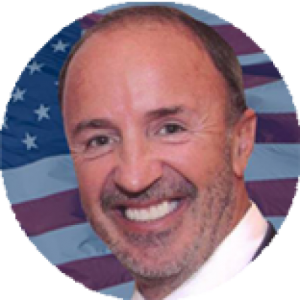Pro-Putin operatives with connections to the Kremlin have joined forces with fringe political movements in Germany in an attempt to push Europe’s largest economy away from its support of Ukraine.
“We must stop being vassals of the Americans,” right-wing German politician Markus Beisicht said at a rally in Cologne of over 2,000 people that was aimed at pressuring Berlin to break away from its support of Ukraine, according to a report from Reuters Tuesday.
The report said Beisicht is one of several people working inside Germany for friendlier relations with Moscow amid Russia’s invasion of Ukraine, helping lead a movement that has attempted to tap deep emotional connections between Russia and Germany in hopes Europe’s foremost economic power will change course.
Those joining Beisicht include pro-Putin operatives who have been linked to Moscow and factions of Germany’s far-right movement, including a former Russian Air Force officer formerly named Rostislav Teslyuk who settled in Germany under the name Max Schlund.
‘FROZEN CONFLICT’: A LOOK BACK AT 2022’S KEY MOMENTS IN UKRAINE’S FIGHT WITH RUSSIA
Over the last few months, Schlund reportedly traveled to Russian-controlled eastern Ukraine and Moscow for a conference where President Vladimir Putin was the keynote speaker, a trip that was paid for by a Russian government agency.
The group is joined by leaders of factions of Germany’s far-right, who often go by aliases both in pro-Russian internet posting and at rallies in support of Russia in recent months.
BIDEN TO DELIVER PATRIOT MISSILES TO UKRAINE AS ZELENSKYY VISITS WASHINGTON
“Destabilization of an adversary from within through subversion is part of Putin’s playbook,” Rebekah Koffler, a former DIA intelligence officer and the author of “Putin’s Playbook: Russia’s Secret Plan to Defeat America,” told Fox News Digital.
Germany is the European Union’s largest economy and a leader of what has been a united Europe, a delicate coalition of countries who have so far been steadfast in their support of Ukraine. If any movement to turn Berlin against Kyiv were to succeed, it would deal a critical blow to a country that has depended on Western military assistance to survive under an onslaught of Russian forces.
“Russia seeks to fracture NATO but cannot use military force because it would trigger Collective Defense Clause, starting World War III,” Koffler said. “So, on Putin’s orders, a special strategy was developed called ‘indirect action,’ which Russia uses to target Germany and other NATO countries. It regularly infiltrates spies into these countries and recruits human assets within those governments in order to influence their policies in favor of Russia and Putin.”
Germany has sent over 1 billion euros in humanitarian aid, military equipment and advanced air defense systems to Ukraine since the war began, and polls show the majority of Germans still support Ukraine. But the polling also indicated support for German military support for Ukraine may be waning as Berlin attempts to tackle the steep rise in energy costs facing its citizens.
GERMAN AUTHORITIES CONTINUE HUNT FOR MEMBERS IN COUP PLOT
Germany also represents a unique opportunity for Putin to turn Europe against Ukraine, with the country sharing deep historical and cultural roots and a population of several million Russian speakers.
The story comes after authorities in Germany last month foiled a coup attempt by far-right members of the Reichsbürger movement, with the government saying the “domestic terrorist organization” planned to overthrow the German government and install a “prince” related to the former German royal family.
It’s also less than a month after an employee of Germany’s foreign intelligence service was arrested on suspicion of treason, with prosecutors alleging the employee passed “state secret” information to Russian intelligence services.
According to Koffler, Russia’s experience in East Germany also gives the Kremlin a leg up on running such a campaign.
“Germany is a special case where Russian intelligence services have a competitive advantage,” Koffler said. “While stationed in Germany during his KGB days, Putin was running spy networks and collecting compromising information on government officials.”
As the war nears its second year, Ukraine will continue to depend on the support of a united Europe and the U.S. But as energy costs continue to rise, the pro-Putin movement within Germany threatens to capitalize on the economic situation and push Berlin away from Kyiv.
According to Koffler, the groundwork for such a success was laid by Moscow long ago.
“The Kremlin is capitalizing now on all that work done during the Cold War,” Koffler said. “Why do you think Germany has grown dependent on Russian energy? Why has it always been soft on Russia? From the intelligence perspective, the answer is very clear.”






